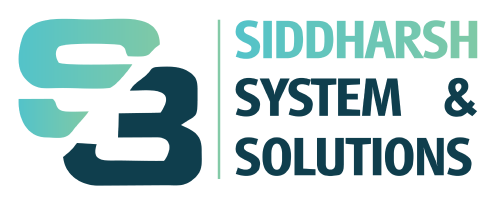Mega Progress in Just a Few Hours
Artificial intelligence (AI) is making surprisingly fast progress. So what has made this technology suddenly become so powerful? And what does that ultimately mean for us? R&M guest author Dr. Lars Jaeger, a well-known scientist, author and entrepreneur takes a look at these questions.
Computers learn using patterns

The secret behind the fast progress of AI is what is referred to as deep learning: an architecture of artificial neurons and their interconnections inspired by the human brain. These networks are trained on massive quantities of labeled data.
Then, they use what they have learned, i.e. how they have chosen their many different parameters, based on the learning data, to detect subtle patterns in other mounds of data. This data is available online, e.g. data on a person’s behavior, contacts, and interests. Internet companies such as Google, Facebook, Microsoft, Baidu, Tencent, and Alibaba collect this data and feed it to their AI machines.
AlphaGo shows how it’s done
Google’s AlphaGo demonstrated just how quickly AI can learn. Only 18 months after AlphaGo’s spectacular victory over the best human Go, player, Google had created a new version of a Go-playing artificial intelligence.
AlphaGo Zero did not need to be fed with past games anymore. After just three days and 4.9 million games, the artificial genius had reached a capability in the Go game that enabled it to beat its predecessor 100 games to zero in 100 games. And AlphaGo Zero had similar success in chess.
No more limits
An AI such as AlphaGo Zero is so powerful because it is “no longer constrained by the limits of human knowledge,” says one of the creators of AlphaGo and AlphaGo Zero, Demis Hassabis.
“That is certainly a statement that provides some food for thought,” warns Lars Jaeger.
Where is the protection?
Leading scientists and critical entrepreneurs claim that AI can be as dangerous to humans as nuclear weapons. Experts are begging governments to provide a framework of laws and regulations. This is based on their concern that policymakers oversleep technological developments, do not take them seriously or simply do not understand them at all.
Dr. Lars Jaeger also warns of the consequences of using AI. He expects an active shaping of the technology by society as well as democratic legitimization. His critical conclusion: “Intervention at the state level has only ever taken place when the technology was already ‘out there’ and its dangers had become obvious. In the future, that will no longer be enough! Surrendering such an important playing field as AI to the American capitalists or Chinese communists could prove fatal.”
Good AI requires good connectivity!
Without fail-safe, clean connectivity, AI will not work. With its solutions, R&M is, on the one hand, providing the basis for artificial intelligence to do their job reliably and without interference, but, on the other, would like to call for responsible dealings with this new technology. Companies should use the new possibilities carefully to market their products successfully, but should never lose sight of the overall ethical picture and should sensitize their stakeholders accordingly. With his commitment and dedication, scientist and academic Lars Jaeger is making a valuable contribution to sensitizing society to the importance of reliable dealings with modern technologies. His latest book «Braving more future – how we all benefit from progress» was published in the summer of 2019, initially in German






